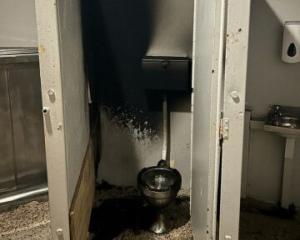
The first council meeting to be held in Ranfurly, water services manager Julie Muir spoke to councillors about a Taumata Arowai discussion document on proposed wastewater environment performance standards.
More auditing and testing would be required, she said.
And the council would be compelled to have a third-party auditor check the council’s audit.
Asked about the cost of that, Ms Muir said consultants Beca had to be engaged to audit the council’s annual audit before it went to the NZ Audit Office at a cost of between $10,000 and $12,000.
Even if the council declared it was non-compliant in an area, Beca had to carry out an audit to ensure it actually was non-compliant.
Wastewater testing frequency would be significantly stepped up under the proposal. The frequency would be decided by the number of people using the scheme. At the moment Alexandra, which was tested every three months, and Cromwell currently monthly, would shift to two-weekly. Roxburgh’s six-monthly testing and Naseby and Ranfurly’s three-monthly would all move to monthly. There would be no change for Omakau and Lake Roxburgh Village, as they were already tested monthly.
"People talk about why council staff numbers are going up. Sometimes it’s because we are bringing work in-house and doing work we never had to do before."
Each of the council’s eight water supplies had 120 rules that had to be reported on each year, she said.
Every one of the rules had to entered separately for each water supply on the Taumata Arowai portal before the end of February each year.
Councillor Martin McPherson said the people demanding staff cuts to save money would be out of luck because central government made demanded of local government "without a cheque attached".
Ms Muir said there had been a huge misunderstanding across New Zealand that the current government’s policies around water was that there was not going to be change.
"It was always that you would meet the standards. There would be higher monitoring and performance monitoring. I don’t think it matters what government is in, there’s been a big shift in the standards to our benefit."
However, the discussion document was not all bad news, Ms Muir said.
Standardisation of plant design and operation, nationally consistent environmental standards, longer term (35-year) consents for wastewater and certainty regarding required standards and treatment quality were all good for the council.
The councillors all agreed a submission should be prepared on the proposals and brought back to council for retrospective approval at its April meeting, as that was after the closing date for submissions.












